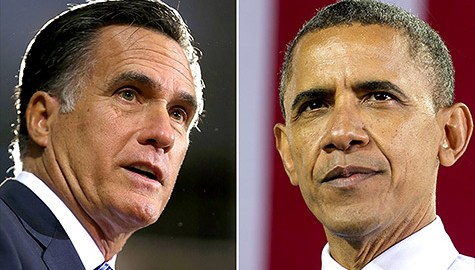The True Science of Elections?

For a couple of days, I was inclined to buy the theory that Obama won the election because his campaign was so “metric driven.” Metric driven in this case seems to mean the Machiavellian science of manipulation of the voters. It’s measurable knowledge of who’s going to vote and why in key places. It’s knowledge of how to turn out just enough voters in the battleground states to win. It’s also, to some extent, knowledge of how to depress the turnout of the key groups supporting your opponent.
The science, this time, had to be pretty precise, because there was very little margin for error. The best the president could conceivably expect is a fairly narrow victory. And so it’s not like he had total control of the behavior of voters. He thought he developed just enough of an effective method to be pretty sure he was going to win. The fact of that control was reflected in state polls. That’s why those who followed the state polls pretty exactly predicted the election’s outcome.
The best evidence for the science is that the president won every one of the battleground states with the exception of NC, which he was perfectly willing to semi-concede in advance.
On election morning, it seemed to me, he was pretty darn certain he was going to win all the battleground states except VA and FL. And he didn’t need those two states to get reelected. His people were a little afraid of surprises, but not too much. They knew they had the most expert get-out the-vote effort ever, and the turnouts from key places met or slightly exceeded their expectations.
Romney, we now know, really thought he was going to win the election, because his polls were based on flawed turnout models. His groups—beginning with white males and Republicans—were over-represented in his polls.
Not only that, Romney mobilization and turnout operation was a lot less elaborate and sophisticated that Obama’s. And his commercials and so forth were fewer in number and less clever in pushing key buttons. He relied a lot more on volunteers he couldn’t really supervise or control. I told a Romney operative a few weeks before the election that the Romney ground game seemed to stink by comparison to the president’s. He said don’t worry, we’re counting on the enthusiasm of evangelical volunteer efforts. Obama wouldn’t have left something so important to chance!
But maybe this story of Obama’s “rational control”—which admittedly contains a lot of truth—is overhyped. It turns out that Romney’s highly centralized computerized system full of the information on which his election-day GOTV effort depended just didn’t work. Because of that crash, his 30K+ volunteers were left clueless. And of course election day was much bigger for Romney than Obama, because he had done a lot less to mobilize his guys as early voters. Here’s the conclusion of an amazing account of the collapse of Project ORCA:
So, the end result was that 30,000+ of the most active and fired-up volunteers were wandering around confused and frustrated when they could have been doing anything else to help. Like driving people to the polls, phone-banking, walking door-to-door, etc. We lost by fairly small margins in Florida, Virginia, Ohio and Colorado. If this had worked could it have closed the gap? I sure hope not for my sanity’s sake.
The bitter irony of this entire endeavor was that a supposedly small government candidate gutted the local structure of GOTV efforts in favor of a centralized, faceless organization in a far off place (in this case, their Boston headquarters). Wrap your head around that.
Go back and look at the result in OH. It’s, I think, closer than Obama thought it would be. And the rural vote for Romney is lower than most polls expected. The also quite close VA and FL also show lower-than-expected turnouts by rural evangelicals and similar groups.
These facts, noticed, of course, by Republicans, have been attributed by some to a small but significant backlash against the Mormon. Others have claimed that it’s the result of Obama’s clever characterization of Romney as an out-of-touch plutocrat. But another theory is that Romney people just weren’t doing what anyone would normally expect in getting out key vote. You can’t tell me that the Obama people knew THAT was going to happen.
I’m not saying that an effective implementation of Project ORCA would have turned the election. It’s pretty lame, after all, compared to the comparable Obama operation. But you can’t convince it wouldn’t have made the close states at least noticeably closer.
My point is not to show Romney didn’t deserve to lose. It’s merely to show that the outcome of elections is more subject to chance than those bragging about the new science of rational prediction think.





